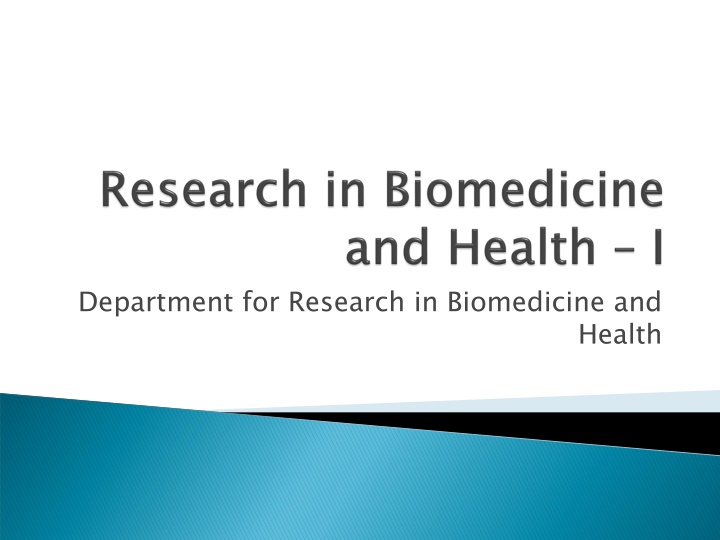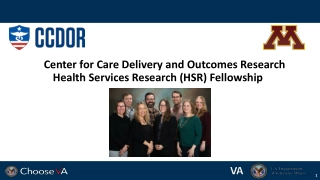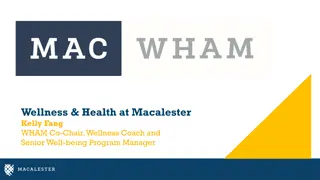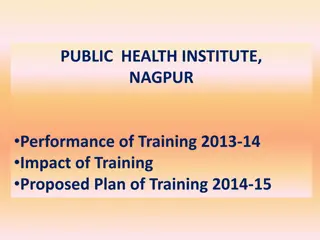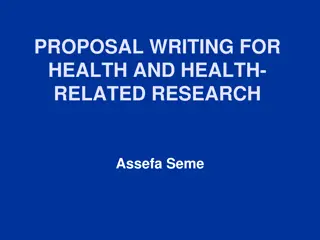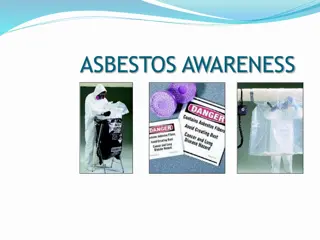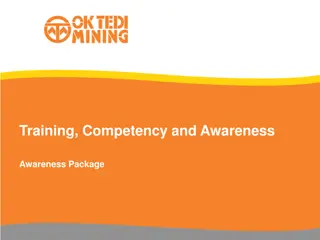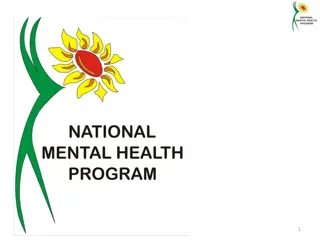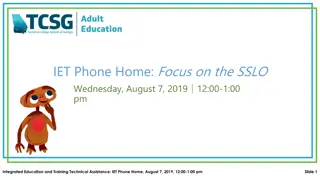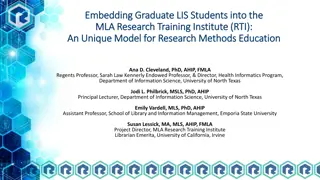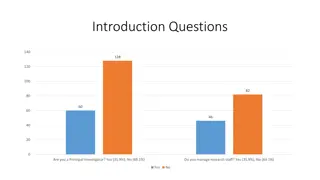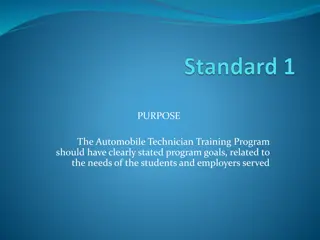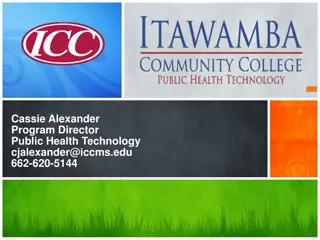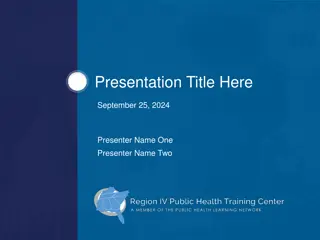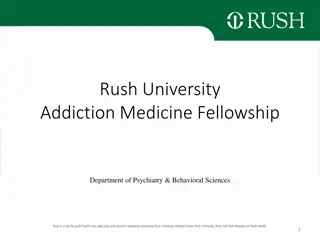Comprehensive Training Program in Biomedicine and Health Research
The Department for Research in Biomedicine and Health offers a detailed training program focusing on foundational medical knowledge, clinical disciplines, and research methodology. The program includes theoretical learning, practical application, and evidence-based medicine components. Assessment is done through practicals, quizzes, and written tests, ensuring students acquire essential skills for scientific work in medicine, such as problem-solving and effective communication. The vertically and horizontally integrated course spans three years, covering research methodology, medical informatics, and statistics, ultimately preparing individuals for a career in biomedical research and healthcare.
Download Presentation

Please find below an Image/Link to download the presentation.
The content on the website is provided AS IS for your information and personal use only. It may not be sold, licensed, or shared on other websites without obtaining consent from the author.If you encounter any issues during the download, it is possible that the publisher has removed the file from their server.
You are allowed to download the files provided on this website for personal or commercial use, subject to the condition that they are used lawfully. All files are the property of their respective owners.
The content on the website is provided AS IS for your information and personal use only. It may not be sold, licensed, or shared on other websites without obtaining consent from the author.
E N D
Presentation Transcript
2007: Directive 2005/36/EC on the recognition of professional qualifications Article 24: Basic medical training 2
3. Basic medical training shall provide an assurance that the person in question has acquired the following knowledge and skills: (a) adequate knowledge of the sciences on which medicine is based and a good understanding of the scientific methods including the principles of measuring biological functions, the evaluation of scientifically established facts and the analysis of data; (b) sufficient understanding of the structure, functions and behaviour of healthy and sick persons, as well as relations between the state of health and physical and social surroundings of the human being; (c) adequate knowledge of clinical disciplines and practices, providing him with a coherent picture of mental and physical diseases, of medicine from the points of view of prophylaxis, diagnosis and therapy and of human reproduction; (d) suitable clinical experience in hospitals under appropriate supervision. 3
Vertically and horizontally integrated course Year 1: 50 h Knowledge and skills in research methodology, medical informatics and statistics Year 2: 25 h Practical application of research methodology Year 3: 25 h Evidence-based medicine 4
Exam: 10 practicals (each 1 point) + 4 quizzes (each 5 questions 20 points) + written test of 20 questions (20 points) final mark
Characteristics of scientific work in medicine asking important questions, identifying key problems, clear formulation of questions collecting and assessing relevant information, effective understanding of information making correct conclusions and solutions, and testing them according to relevant criteria and standards approaching problems with an open mind effective communication with others in reaching solutions to problems 6
Characteristics of clinical work in medicine asking important questions, identifying key problems, clear formulation of questions collecting and assessing relevant information, effective understanding of information making correct conclusions and solutions, and testing them according to relevant criteria and standards approaching problems with an open mind effective communication with others in reaching solutions to problems 7
(1) Science is (2) striving of (3) humankind for (4) genuine (5) knowledge (3) Humankind Communication Consensus Publishing (information transfer) English (1) Science Description of Nature Testability of findings Tentative conclusions Reality of the world Measuring (counting, weighting) Experiment (2) Striving Truth Hypothesis Theory Paradigm (Popper/Kuhn) (5) Knowledge Innovation chain Education Culture Moral Discoveries Patriotism (4) Genuine knowledge Rationality Data Statistics Control group Evidence/argument Ethics Levels of irrationality: 1. loses argument with own other arguments 2. contradictory to known common knowledge 3. knows has not searched enough, but thinks this sufficient 4. thinks has searched all, but has not 5. has searched all, but the existing knowledge is not sufficient 8
